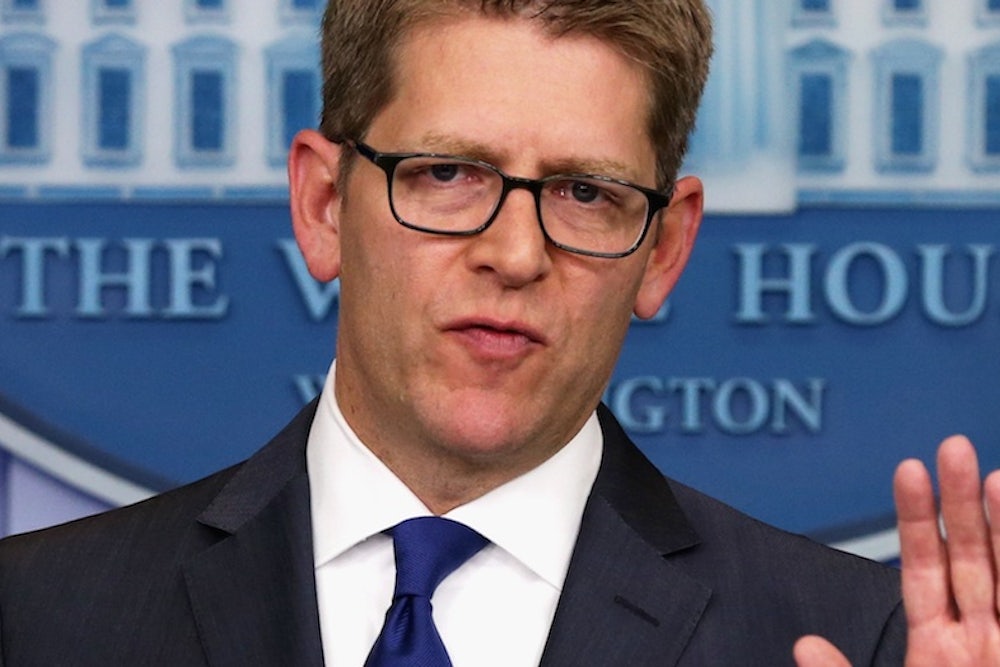Jay Carney took the podium for the announcement of his departure today in much the same mien as when he began the job in February 2011. Other than a change to hipper, square glasses, and that flirtation with a beard, Carney seems to have escaped his job with little of the physical and existential drain that you see in the face of President Obama. And that may say more than anything about Carney’s tenure as White House press secretary. Carney was selected for the role in part to alleviate the press corps’ frustration with his predecessor, Robert Gibbs. Where Gibbs was bombastic and longwinded, Carney was supposed to be placid and direct. And where Gibbs had often failed to handle the reporters’ demands and inquiries—he spent much of his time in meetings with the president—Carney would be present, behind the desk when he wasn’t behind the podium. The idea was steadiness, calm, reliability.
It didn’t take long, of course, for the knock on Carney to emerge: The press corps decided he was too out of the loop. At least with Gibbs, the refrain went, you knew you were getting a look at the president’s thinking. Carney, they noted in a very This Town kind of way, wasn’t “in the room” where decisions get made. (I worked in the White House press office for a little more than two years; all but the final month of that was under Gibbs.) The irony here isn’t the amnesia of the White House reporters: the irony is that the job is actually impossible.
Under Carney, the press briefing further devolved into daily rounds of rope-a-dope, in which he appeared mostly interested in outlasting his antagonists. Gibbs had enjoyed picking fights and going off-script; Carney generally preferred ladling out safe answers. Typical of the reigning gripes was Politico’s compilation of 131 instances of Carney employing that trusty dodge, “I appreciate the question…” Over the last year or so, though, he seemed to change tactics, becoming more aggressive. In one memorable exchange, he battled a question from ABC’s Jonathan Karl, a frequent nemesis, by impersonating Karl and mocking what he saw as his needlessly dramatic phrasing. Mediaite’s Tommy Christopher dubbed this new incarnation “the Carneyvore.” Others were less amused: Republican Congressman Darrell Issa, chairman of the House Oversight Committee, on CNN to discuss Benghazi fallout, called Carney “a paid liar.”
But whether docile or sneering, Carney was just doing what was expected of him, and—depending on where you sit—doing it quite capably. I wrote a piece for this magazine advocating that the daily briefing, having long ago devolved into a news-less pageant, be put out of its misery. Unsurprisingly, the White House didn’t take that advice, but Carney endured anyway—and at three-plus years in the role, he outlasted many of his predecessors. He doggedly protected the president’s interests with the full understanding that doing so would earn him bad reviews from reporters.
The good news for Carney is twofold. As soon as his successor, Josh Earnest, assumes the job, Carney’s reputation will undergo a rehabilitation, just as Gibbs is now remembered with nostalgia by White House reporters. More important, Carney will get to step out of one of Washington’s most fruitless positions and go make more money doing something rewarding. Even Jon Karl, the reliable adversary, seemed to recognize the sweetness there.
“Congratulations on getting your life back,” he told Carney today.
“Thank you, sir,” Carney replied, with no hard feelings.
